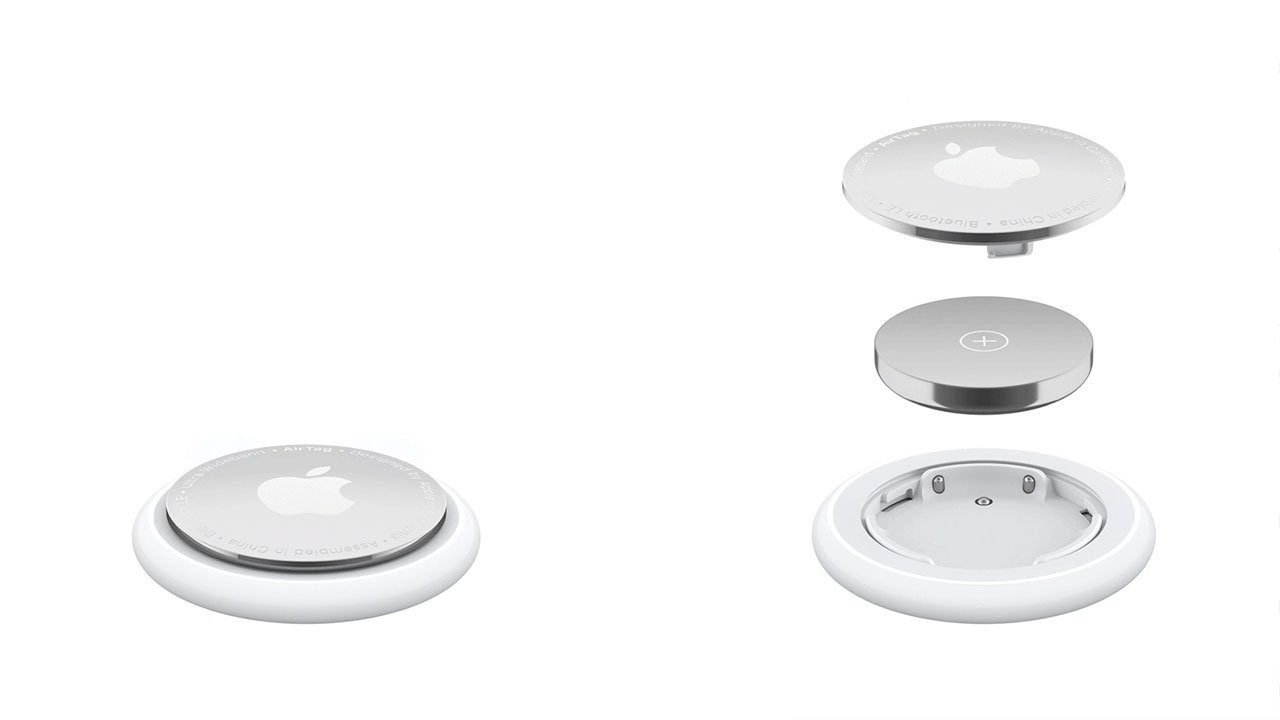Apple warns against AirTag replacement batteries with bitter coatings
While it may be some time before users are due to replace the button cell battery in their AirTag, Apple has issued a warning against buying products with bitterant coatings as they might not work with the device.

According to an Apple support document regarding AirTag battery replacement, users should avoid purchasing batteries with bitterant coatings.
"CR2032 batteries with bitterant coatings might not work with AirTag or other battery-powered products, depending on the alignment of the coating in relation to the battery contacts," Apple says in the document, as spotted by The Loop.
The special treatment is used by some battery makers to prevent children from swallowing the small power sources. Bitterants are non-toxic chemicals that smell or taste bitter and are commonly used to discourage ingestion or inhalation of potentially dangerous products. Chemicals used by battery makers react with saliva to create an unpleasant taste.
Apple published the support page days after Australia issued a consumer advisory urging parents to keep AirTag away from children because its easily accessible battery is a choking hazard.
In the warning, the Australian Competition and Consumer Commission cited the ease at which AirTag can be opened, revealing the small CR2032 battery. To open AirTag, users simply press down on the stainless steel battery cover, twist counterclockwise until it stops rotating and lift it off.
The ACCC also said closing an AirTag's chassis does not always ensure that the battery compartment is secure. Apple's tracking device plays a tone when its cover makes contact with the battery, but that does not necessarily mean the device is locked, the body said.
At least one Australian retailer pulled the product from its shelves citing the same concerns outlined by the ACCC.
Read on AppleInsider

According to an Apple support document regarding AirTag battery replacement, users should avoid purchasing batteries with bitterant coatings.
"CR2032 batteries with bitterant coatings might not work with AirTag or other battery-powered products, depending on the alignment of the coating in relation to the battery contacts," Apple says in the document, as spotted by The Loop.
The special treatment is used by some battery makers to prevent children from swallowing the small power sources. Bitterants are non-toxic chemicals that smell or taste bitter and are commonly used to discourage ingestion or inhalation of potentially dangerous products. Chemicals used by battery makers react with saliva to create an unpleasant taste.
Apple published the support page days after Australia issued a consumer advisory urging parents to keep AirTag away from children because its easily accessible battery is a choking hazard.
In the warning, the Australian Competition and Consumer Commission cited the ease at which AirTag can be opened, revealing the small CR2032 battery. To open AirTag, users simply press down on the stainless steel battery cover, twist counterclockwise until it stops rotating and lift it off.
The ACCC also said closing an AirTag's chassis does not always ensure that the battery compartment is secure. Apple's tracking device plays a tone when its cover makes contact with the battery, but that does not necessarily mean the device is locked, the body said.
At least one Australian retailer pulled the product from its shelves citing the same concerns outlined by the ACCC.
Read on AppleInsider

Comments
We need products to be serviceable by us is what I heard everyone was screaming and when a manufacturer make them such then some site concerns.
But seriously, how do you know which ones have this coating (apart from licking them!)?
https://d14e8oeg5e788p.cloudfront.net/content/79084/41bbcc13df3970ec6f3eb8a0e27f2ee1.jpg
People really need to pay attention to what their kids have access to.
Warning: AirTag, the battery cover, and the battery might present a choking hazard or cause other injury to small children. Keep these items away from small children.
You guys really need to pay more attention to what you read.
CR2032 batteries with bitterant coatings might not work with AirTag or other battery-powered products, depending on the alignment of the coating in relation to the battery contacts.
A quick wipe with something like a wet paper towel (and drying, for the pedants) will very likely make the battery serviceable, if it poses a problem in the first place. You could probably just pop the back off and spin the cell in the AirTag and scrape enough coating to make it work if you're the quick and dirty type, if it's even a problem in the first place.
I'm wondering how to know if the battery is coated with a bitterant, in the first place. Maybe it would be mentioned on the package as a selling point.
A lot of CR2032s and CR2025s pass through my place as I have a lot of remotes and clocks that use them, and I haven't seen a mention of 'bitterant inside'.
I imagine Apple is being proactive about the possible battery issue, same with their Apple Card, same with some scuffing issue that never became an issue, but I haven't seen any other mention of a bitterant issue with any other device.
Some people wet themselves waiting for the chance to say Apple screwed up.
Companies, including Apple, need to follow some good design rules - not necessarily because you might be sued otherwise (which, I admit, is a stupid practice, but almost exclusively relevant in USA), but because it makes sense to reduce the risks of accidents. This exact problem has been solved in thousands of products by a tiny screw. I bet Apple will find a more elegant solution, but if they can't just add the damn screw.
Why make such a fuss about Apple f@cking up this?
And that is just because you think a small screw (or some other, more elegant, solution) is a governmental abuse of power?